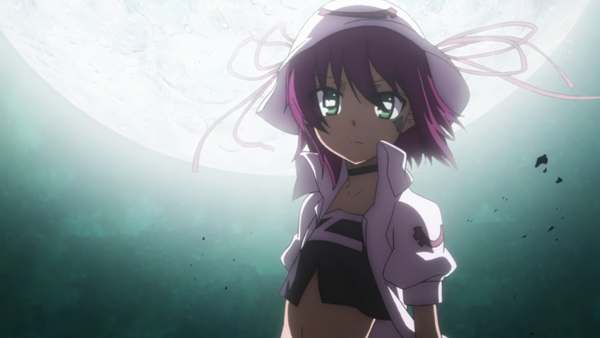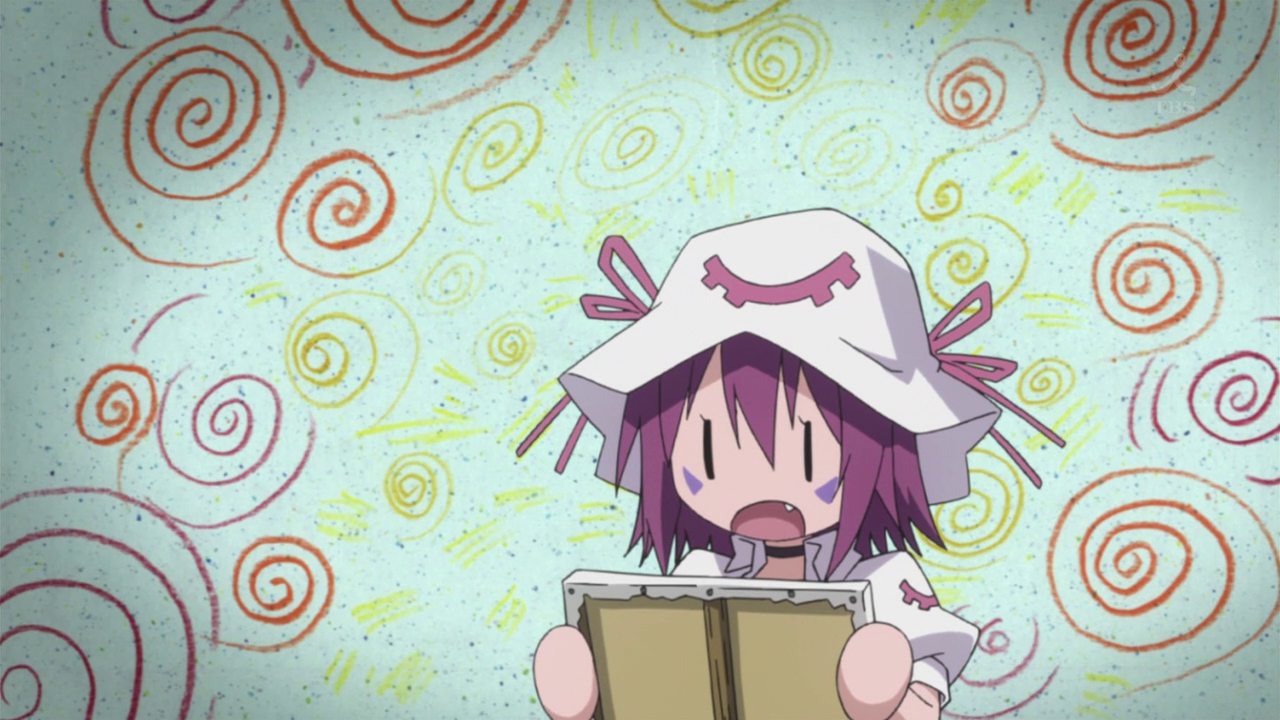A boy meets a magical girl, the lost inhabitant of another world. Despite her unrivaled prowess in fighting, this girl is confused and amnesiac, hoping only to get back home. Despite being clearly nonhuman, she has the appearance and emotions of a teenage girl. Will she find a way back home? Even if she does, will she really want to go, or will the burgeoning relationship hinted at with the male lead compel her to stay? Yumekui Merry has interesting character designs, good background music, and – refreshingly, given the stale setup – a male lead who is neither a parody of hypermasculinity (as Tengen Toppa Gurren Lagann‘s Kamina was) nor a spineless noodle (as Evangelion’s Shinji was.)
Sadly, that last sentence contains all there is that is good about Yumekui Merry. Production values are terrible, pacing is worse than Witch Hunter Robin, and the writing lacks direction. Entire sequences are shown with a white background and crudely sketched faces. Certainly, this show contains many dream sequences, which can’t be expected to conform to reality, but just one look at Mahou Shoujo Madoka Magica shows what can be done with alternate reality settings in a contemporary show. Merry’s low-budget lapses don’t even begin to compare.
Mistleteinn is a properly epic adversary, if ridiculously flat: she is given no backstory and no personality beyond whimsy and naked cruelty. The sensei that serves as her vessel is foreshadowed as being two-faced and scheming, but there is no examination of why he wound up this way. The victory of the main characters over such unmitigated evil is predictable and boring, involving no real plot twists or justification. The heroes triumph against a vastly superior adversary because they are the heroes of the show, not because they have found the villain’s weakness, undergone training, unlocked the power of their heritage, or any other such pretext.
In the end Yumekui Merry assembles a lot of effects without causes. There is a parallel to Tom Stoppard’s existentialist work Rozencrantz and Guildenstern are Dead, but in Stoppard’s work, it is made clear that the backstory exists and the appearance of arbitrary phenomena is a result of the perspective of the title characters. The audience knows what is going on, and is thus able to appreciate the confusion of the characters and how it results from a combination of circumstances. In Yumekui Merry, no one really knows what is going on – not the humans, not the dream demons, not the audience, nor, one suspects, the producers themselves.



